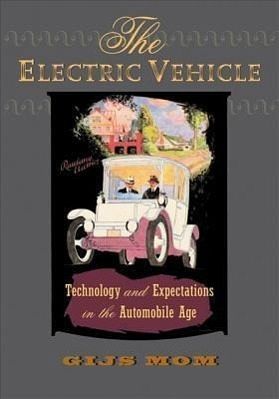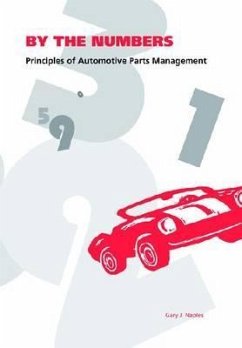
The Electric Vehicle
Technology and Expectations in the Automobile Age

PAYBACK Punkte
19 °P sammeln!
Engineer-Historian Award, American Society of Mechanical Engineers Nicholas-Joseph Cugnot Award, Society of Automotive Historians Throughout the century-long history of electric propulsion, the widespread conviction that the electric car was an inferior technology remained stubbornly in place, an assumption mirrored in popular and scholarly memory. The Electric Vehicle challenges this view. Gijs Mom argues that at the beginning of the automobile age neither the internal combustion engine nor the battery-powered vehicle enjoyed a clear advantage. Mom finds that a nexus of factors--cultural (und...
Engineer-Historian Award, American Society of Mechanical Engineers Nicholas-Joseph Cugnot Award, Society of Automotive Historians Throughout the century-long history of electric propulsion, the widespread conviction that the electric car was an inferior technology remained stubbornly in place, an assumption mirrored in popular and scholarly memory. The Electric Vehicle challenges this view. Gijs Mom argues that at the beginning of the automobile age neither the internal combustion engine nor the battery-powered vehicle enjoyed a clear advantage. Mom finds that a nexus of factors--cultural (underpowered and less rugged, electric cars seemed "feminine" at a time when most car buyers were men), structural (the shortcomings of battery technology at the time), and systemic (the infrastructural problems of changing large numbers of batteries)--ultimately gave an edge to the internal combustion engine. As a new generation of electric vehicles becomes a reality, The Electric Vehicle offers a long-overdue reassessment of the place of this technology in the history of street transportation. "Mom has mined the archives of several countries, uncovering manuscript and published sources in four languages, to produce a model comparative history. His main focus is the United States and Germany, but he follows electric vehicles to Britain, France, and the Netherlands, with side trips to other European countries. The result is a stunning compilation of examples and figures, ranging from Chicago to Berlin and from race cars to milk trucks."--Enterprise and Society "The research is exhaustive . . . He shows how competition between the electric and the gasoline car involved much more than the vehicles themselves, and he helps us understand the electric vehicle as the center of an alternative system. This has future implications . . . The electric car's 'failure' was not technical but cultural."--American Historical Review "Impressive . . . Surely deserves a place on the bookshelf of automotive historians and anyone interested in why we get the technologies that we do."--Technology and Culture "A stunning triumph of creative and sophisticated scholarship . . . Mom's prescription--that technological change be studied holistically--is a potent antidote to the poisonous extremes of technological, economic, and sociocultural determinism."--Business History Review













